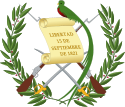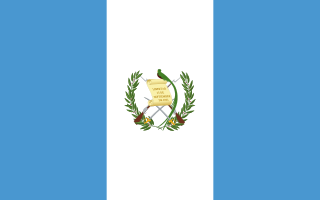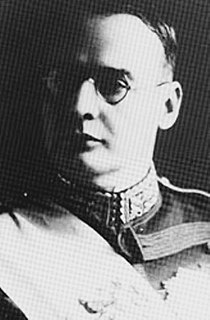
The Ecological Green Party of Mexico is a green-conservative political party in Mexico. In the 2012 Legislative elections, the party took 34 seats in the Chamber of Deputies and nine seats in the Senate. During the 2012 Presidential election, PVEM supported Enrique Peña Nieto (EPN), the candidate from the Institutional Revolutionary Party (PRI), who was elected. In 2018, PVEM supported Todos por México Everyone for Mexico coalition, along with PRI and Panal. José Antonio Meade, the coalition's candidate, came in third in a four-way race, with 16.43% of the vote.
Mexican literature is one of the most prolific and influential of Spanish-language literatures along with those of Spain, Argentina and Cuba. It has internationally recognized authors such as Juan Rulfo, Octavio Paz, Carlos Fuentes, Amado Nervo and several others.

González is a Spanish surname. In Spain, González is the second most common surname with 2.08% of the population having this surname. González is also a common surname in Latin America. It is one of the five most common surnames in Argentina, Chile, Mexico, Paraguay, and Venezuela, making it one of the most common surnames in the Spanish-speaking world. In the United States, González ranked as the 13th most common surname in 2017.

José Rafael Carrera Turcios was the president of Guatemala from 1844 to 1848 and from 1851 until his death in 1865, after being appointed President for Life in 1854. During his military career and presidency, new nations in Central America were facing numerous problems: William Walker's invasions, liberal attempts to overthrow the Catholic Church and aristocrats' power, the Civil War in the United States, Mayan uprising in the east, Belize boundary dispute with England, and the wars in Mexico under Benito Juarez. This led to a rise of caudillos, a term that refers to charismatic populist leaders among the indigenous people. Many regional and national caudillos were interested in power for their own gain. Carrera was an exception as he genuinely took the interests of Guatemala's Indian majority to heart.
Latin American literature consists of the oral and written literature of Latin America in several languages, particularly in Spanish, Portuguese, and the indigenous languages of the Americas as well as literature of the United States written in the Spanish language. It rose to particular prominence globally during the second half of the 20th century, largely due to the international success of the style known as magical realism. As such, the region's literature is often associated solely with this style, with the 20th Century literary movement known as Latin American Boom, and with its most famous exponent, Gabriel García Márquez. Latin American literature has a rich and complex tradition of literary production that dates back many centuries.
Luis Cardoza y Aragón was a Guatemalan writer, essayist, poet, art critic, and diplomat born in Antigua Guatemala but who spent a good part of his life living in exile in Mexico.

Jorge González Camarena was a prominent painter, muralist and sculptor. He is best known for his mural work, as part of the Mexican muralism movement, although his work is distinct from the main names associated with it. His major works include the mural on the main administration building of the Monterrey Institute of Technology and Higher Studies and a mural created for the Universidad de Concepción in Chile. He also created easel works, one of which, La Patria, was well known in Mexico as it was used on the cover of free textbooks from the 1960s into the 1970s. Recognitions for his work include the Premio Nacional de Arte, membership in the Academia de Artes and the Ordine al Merito della Repubblica Italiana, grade Commendatore from the Italian government.

General elections were held in Guatemala between 6 and 8 February 1931. In the presidential election Jorge Ubico was elected unopposed, after the remaining sector of the old Liberal Party did not object to his candidacy, whilst the Conservative Party was too disorganised and discredited from the Lázaro Chacón González era to put forward a candidate. Ubico's Progressive Liberal Party, formed by a union of the two wings of the divided Liberal Party also won the parliamentary election unopposed.
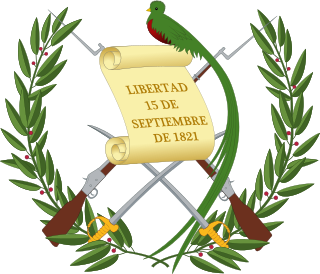
A referendum on the presidential term of Jorge Ubico was held in Guatemala on 25 May 1935. If approved, it would allow Ubico to override the constitutional limitation on serving two consecutive terms in office. It was reportedly approved by 99.85% of voters.

General elections were held in Guatemala on 5 December 1926. The presidential election resulted in a victory for Lázaro Chacón González, who received 88.6% of the vote. Whilst the elections were rigged, the Progressive Liberal Party did manage to win some seats in the Congress.
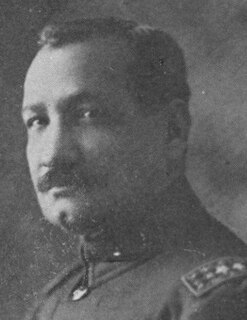
A presidential election was held in Guatemala on 15 December 1921.

Presidential elections were held in Guatemala during seven days in September 1898. Prior to the elections Manuel Estrada Cabrera had established the first real political party in the country's history by admitting people from outside the influential liberals to the Liberal Party.

Indirect presidential elections were held in Guatemala on 8 April 1920. After two decades of repression and dictatorial rule, political opponents of Manuel Estrada Cabrera organized the Unionist Party (PU) in 1919. Led by Conservatives tied to the landed oligarchy, the Unionists also attracted support among the urban proletariat, artisans, students, and industrialists.

Parliamentary elections were held in Guatemala in December 1923. The result was a victory for the Liberal Party, which won all 69 seats. Liberal candidates won overwhelming victories in every constituency, a result that the American diplomatic corps described as farcical.
The Mexican People's Party was a political party in Mexico, founded in 1977. PPM was led by Alejandro Gascón Mercado. PPM was mainly based in the Nayarit and Jalisco states.

Guatemala–Mexico relations refers to the historical and current bilateral relationship between Guatemala and Mexico. Both nations are members of the Association of Caribbean States, Community of Latin American and Caribbean States, Organization of American States, Organization of Ibero-American States and the United Nations.

Presidential elections were held in Guatemala in November 1873. Justo Rufino Barrios wins the presidency.

Presidential elections were held in Guatemala in November 1880.
